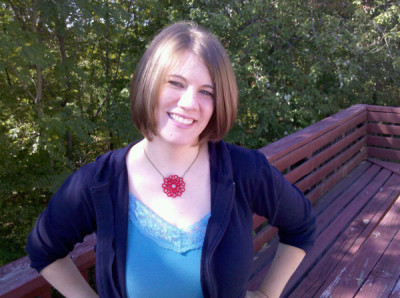Rachel Held Evans Suggests 'Biblical' Label Is Insufficient
Rachel Held Evans, a popular blogger and the author of A Year of Biblical Womanhood, recently explained why she believes calling behavior "biblical" can be dangerous to all Christians, whether they allow the word to define their politics, marriage, or economics.

"When we turn the Bible into an adjective and stick it in front of another loaded word, we tend to ignore or downplay the parts of the Bible that don't quite fit our preferences and presuppositions," Evans wrote in a Nov. 17 blog post for CNN.
"In an attempt to simplify, we force the Bible's cacophony of voices into a single tone and turn a complicated, beautiful, and diverse holy text into a list of bullet points we can put in a manifesto or creed," she added.
"More often than not, we end up more committed to what we want the Bible to say than what it actually says."
Evans goes onto give examples of Christians using the term "biblical" to define how they live their lives.
She uses the specific example of "biblical womanhood," explaining that while growing up, she received several mixed messages on what it meant to be a good Christian woman.
Evans explains that she only felt affected by the messages when she reached adulthood, and found herself in a "childless, egalitarian marriage."
It was then that Evans chose to write A Year of Biblical Womanhood: How a Liberated Woman Found Herself Sitting on Her Roof, Covering Her Head, and Calling Her Husband "Master", during which she spent an entire year living out the Bible's literal instructions that seem to pertain to women, which included growing out her hair, making her own clothes, and sleeping outside once a month while menstruating because a woman on her period is considered unclean, according to the Old Testament.
"Intrigued by the traditionalist resurgence that led many of her friends to abandon their careers to assume traditional gender roles in the home, Evans decides to try it for herself, vowing to take all of the Bible's instructions for women as literally as possible for a year," reads the book's description on Amazon.
Evans explains that the purpose of writing a book about her experience was to show that it is impossible to live an entirely "biblical" lifestyle.
"My goal was to playfully challenge this idea that the Bible prescribes a single lifestyle for how to be a woman of faith, and in so doing, playfully challenge our overuse of the term 'biblical,'" Evans said in her CNN post.
"I did this not out of disdain for Scripture, but out of love for it, out of respect for the fact that interpreting and applying the Bible is a messy, imperfect and – at times – frustrating process that requires humility and grace as we wrestle the text together," she added.
Evans' comments come at a notable time for evangelical Christians, many of whom are trying to determine their future agenda after the re-election of President Barack Obama.
Some critics argue that evangelicals and politicians alike are making too close an association between "biblical" and "politics".
Charles Redfern, a self-described "new Evangelical," recently wrote in an opinion piece for The Huffington Post that the problem with the American election system is that voters are expecting "their presidents [to] become pastors."
Redfern goes on to write that "politics and religion occupy two distinct, although sometimes overlapping, spheres" and although they are undoubtedly linked, they are not enmeshed.
While some argue that Evans is correct in distancing the relationship between the word "biblical" and social issues or lifestyle choices, others argue that now is an integral time for Christians to get closer to their biblical values while the mainstream culture of America chooses a different path.





























